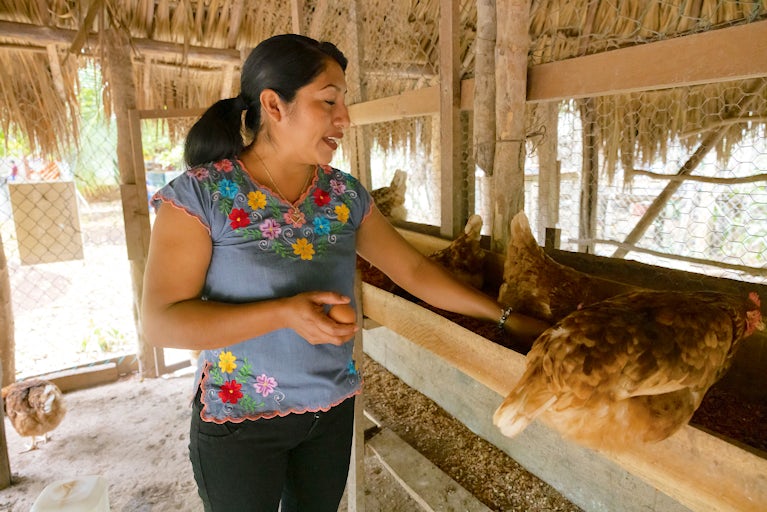
Women Entrepreneurs Decide and Conquer in Mexico
A business collective is challenging restrictive norms and empowering rural women with choice.
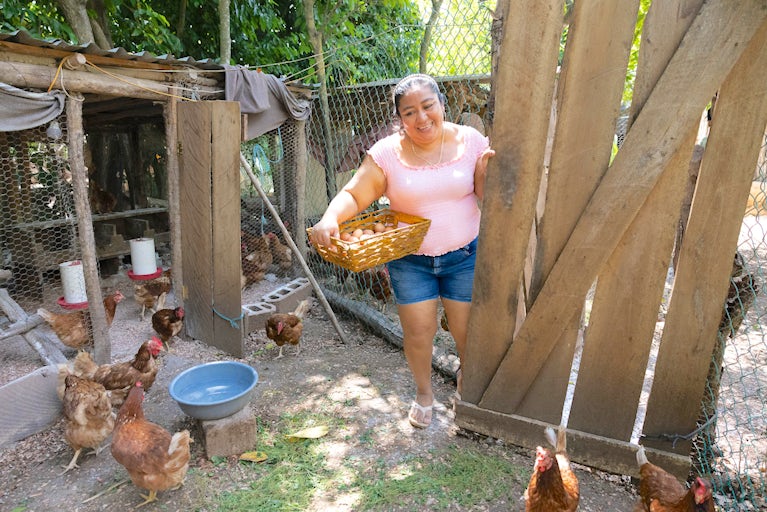

We partner with smallholder farmers for growth, connection to markets and sustainability.

Gustavo Adolfo Maldonado Venegas, Executive Director
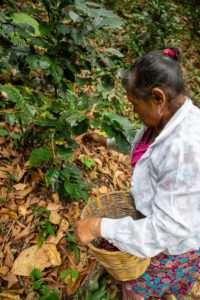
Mexico boasts a rich cultural history, diverse natural resources and a strong agricultural heritage. However, rural areas struggle with high levels of poverty, food insecurity and chronic malnutrition. The southeast, southern and eastern regions where Heifer Mexico operates face significant challenges, with up to 70 percent of the Indigenous population in areas such as the isthmus between Chiapas and Oaxaca living in poverty.
Limited access to finance, climate change, organized crime and inadequate infrastructure further challenge the agriculture sector, impacting productivity and sustainability. The lack of vocational opportunities also drives significant migration from rural areas. Despite these obstacles, Mexico’s potential for development remains strong. Strengthening smallholder farming livelihoods and linking them to inclusive markets are vital steps toward achieving sustainable growth and improving the well-being of rural families.
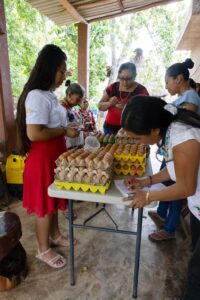
Heifer Mexico increases the income and resilience of smallholder farming families by focusing on sustainability and inclusion. Through building alliances, mobilizing capital and providing training and support, we amplify the quantity and quality of goods produced and increase producers’ competitiveness in local markets.
Our programs teach eco-friendly farming techniques for climate change adaptation and support income diversification through various value chains. At the same time, we help expand the participation and leadership of rural women, solidify small enterprises and foster partnerships with various organizations to reinforce locally led solutions and sustainable community development. These combined efforts ensure smallholder farmers achieve long-term success and improve their quality of life.
Our primary objective is helping families achieve a sustainable living income, our measure for the amount of money required for a decent life — including safe shelter, nutritious food, clothing, education and health care — while also reaching additional benchmarks for economic and climate resilience.
Year Heifer launched in Mexico
Household participants in 2024
Household participants to date
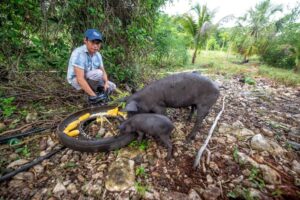
Heifer International’s work is organized at the country level into Signature Programs focused on large-scale, measurable and sustainable impact achieved by building partnerships at all levels. Each program supports farmers through time-bound projects designed to increase their household income.
The Promesa Café y Cacao Signature Program is dedicated to improving the lives and livelihood sustainability of smallholder coffee and cacao farmers in Chiapas, Veracruz, Puebla and Oaxaca. The program improves productivity, adds value to the supply chain and facilitates better market access, all while encouraging women’s participation and technical skill development. Through inclusive market systems and strategic partnerships, these value chains become more resilient and profitable for smallholder farmers.
The Rural Roots Signature Program aims to help 80,000 rural families reach a sustainable living income by 2030. The program strengthens the self-management of organizations, rural agribusinesses and institutions, particularly those led by women and youth. It also makes market systems more inclusive and increases access to natural resources to benefit smallholder farmers and rural communities.
Project timeline: 2022–2024
The Hijuelo project aims to improve the income and livelihoods of families in the Central Valleys of Oaxaca through the parallel implementation of productive agave strategies and community development projects. It focuses on developing agroecological production processes, productive diversification and backyard activities while enhancing capacity and generating community development initiatives. The project also promotes sustainable landscape restoration, strengthens productive skills and forms self-help groups and cooperatives to enhance social capital and entrepreneurship.
Project timeline: 2021–2024
The Milpa for Life project, funded by the John Deere Foundation, helps 2,700 small farming families in Yucatán and Campeche increase their income, productivity and sustainable management of land. The project uses conservation agriculture to make traditional milpa farming (maize, beans and squash) more productive and enrich household nutrition and income while building ecosystem and climate change resilience. Farmers also learn how to diversify with poultry, beekeeping and pigs to further improve their economic and nutritional well-being.
Project timeline: 2022–2025
The Women Entrepreneurs 2 project is set to assist 1,000 families in the Yucatán Peninsula to achieve a living income by developing and strengthening women-led poultry businesses. The project connects these businesses to markets and reinforces the communities’ social capital. In the process, women gain farm management and entrepreneurial skills, access quality inputs and establish connections to local and inclusive markets. The project also promotes savings groups and collective purchases of balanced feed so women can efficiently manage their poultry enterprises and improve their livelihoods.

A business collective is challenging restrictive norms and empowering rural women with choice.
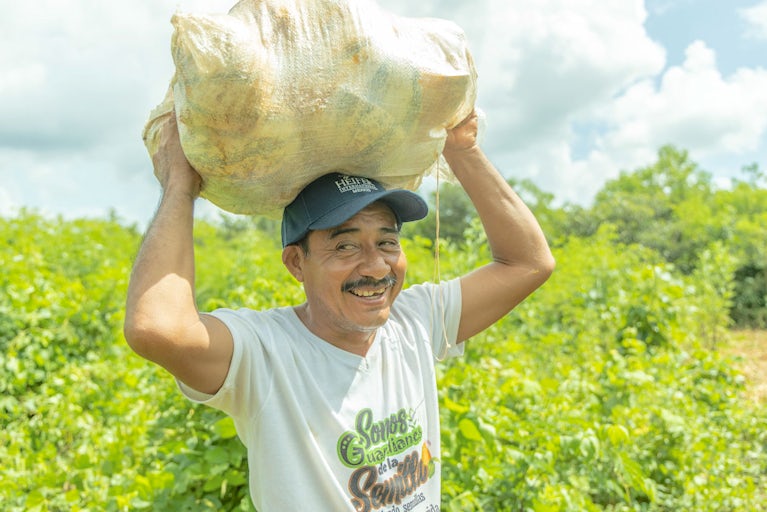
Amidst Yucatán Mexico’s climate challenges, Ricardo and his fellow Seed Guardians preserve native corn diversity, marrying tradition with resilience.
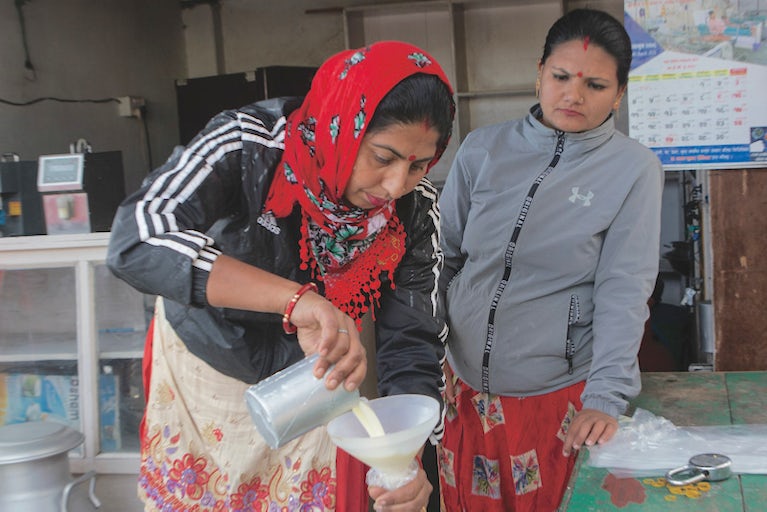
This fact sheet explains Heifer’s locally led development approach, defines sustainable locally led development, and discusses why this approach is important.
Alejandra Rodriguez, John Deere Mexico
Cart is empty
Success!
Please be patient while we send you to a confirmation page.
We are unable to process your request. Please try again, or view common solutions on our help page. You can also contact our Donor Services team at 855.9HUNGER (855.948.6437).
Covering the transaction fee helps offset processing and administrative fees that we incur through taking payments online. Covering the transaction fee for each payment helps offset processing and administrative fees that we incur through taking payments online. Covering the transaction fee for each payment helps offset processing and administrative fees that we incur through taking payments online.
Success!
Please be patient while we send you to a confirmation page.
We are unable to process your request. Please try again, or view common solutions on our help page. You can also contact our Donor Services team at 855.9HUNGER (855.948.6437).
When you donate a gift to someone, you'll have the option to create a free card after your donation is complete.
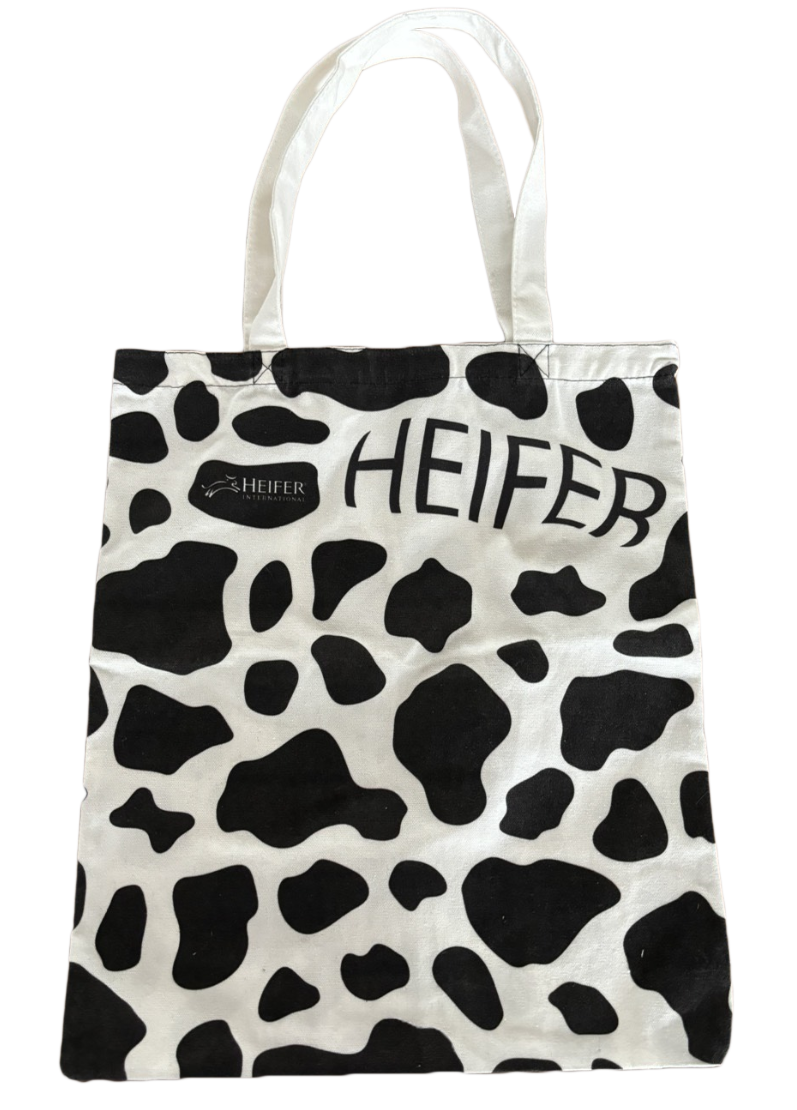
A FREE gift will be sent to supporters who choose to give a monthly gift.
Covering the transaction fee helps offset processing and administrative fees that we incur through taking payments online. Covering the transaction fee for each payment helps offset processing and administrative fees that we incur through taking payments online. Covering the transaction fee for each payment helps offset processing and administrative fees that we incur through taking payments online.

A FREE gift will be sent to supporters who choose to give a monthly gift.